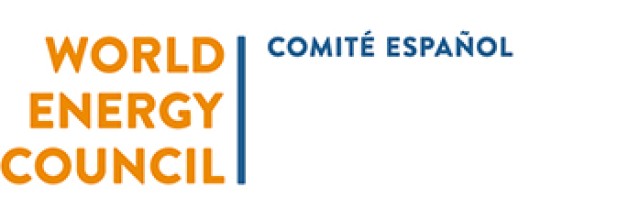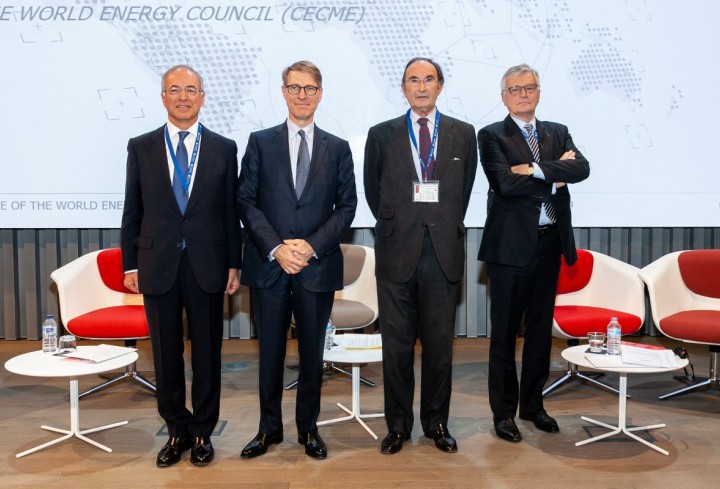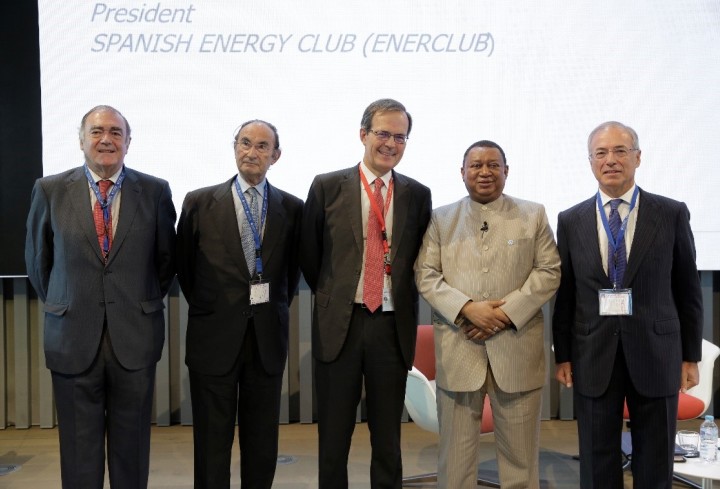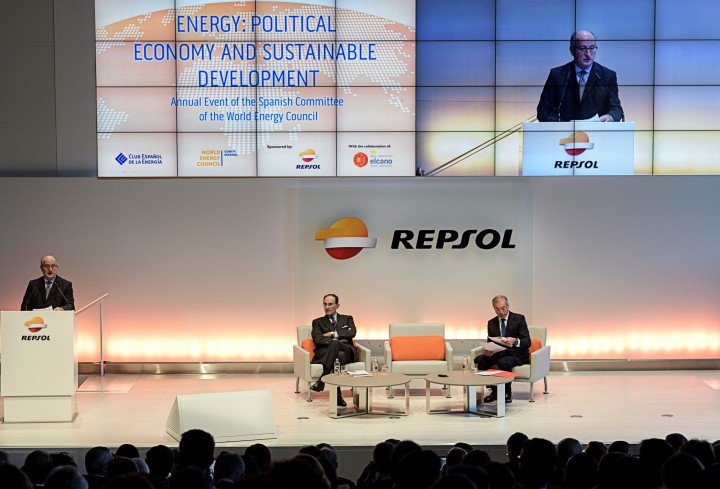The Spanish Committee of the World Energy Council (CECME, acronym in Spanish) represents the WEC in Spain and coordinates the participation of the Spanish energy industry in WEC’s activities, serving as liaison between WEC and the Spanish members. CECME is a part of the Spanish Energy Club (www.enerclub.es), which is a nonprofit organization with more than 300 Associates whose main goal is to contribute to a better understanding of the different energy issues. The main activities of the Spanish Committee include organizing energy-related events in Spain, representing CECME and the World Energy Council in national events, disseminating documentation and collaborating with World Energy Council and its working groups.
Pedro Vasconcelos, Executive Board Member at EDP and Member of EDP Renewables Management Team with Iberia and APAC regions, Global Energy Management platform, Regulation, Markets and Stakeholders division portfolio.
Pedro Vasconcelos is an Executive Board Member at EDP and a Member of EDP Renewables Management Team, overseeing Iberia and APAC regions, in addition to the Global Energy Management platform and Regulation, Markets and Stakeholders division. Pedro is CEO of EDP España and also a Member of the Board of Ocean Winds, EDPR’s dedicated offshore joint venture with Engie.
Pedro’s previous roles at EDP include Chief Operating Officer for APAC, Head of M&A and Corporate Development, Head of Solar Strategy, and executive roles at EDP Inovação, EDP International and Hydro Global as Chief Business Development Officer. Pedro holds an MBA with Distinction from INSEAD, Singapore/France and an MSc in Aerospace Engineering from Instituto Superior Técnico, in Portugal.
Joined EDP in 2007, working as an M&A Project Manager until 2009. He was then seconded to NGEN Partners, a California-based cleantech US venture capital firm, as an Associate, before returning to Lisbon two years later to become EDP's CEO and Chief of Staff until 2013.

Maria Giuseppina (Chicca) Biondi, is an Italian Senior executive with more than 20 years of experience in the energy sector, with a strong track record in the Enel Group. Currently serves as Head of Institutional Affairs and Head of Northwest territory at Endesa, where she leads the cross-country institutional agenda in Iberia, ensuring alignment with Enel Group strategy and managing stakeholder engagement at national and international levels. She supports the representation of Endesa before institutions, associations, and international organisations, contributing to shaping future energy models through engagement with institutional players.
Based in Madrid since 2014, she has held global leadership roles such as Head of Grid Customer Operations and Head of Customer Engagement Digital Solutions at Enel Grids, overseeing digital transformation programs, focused on customer interaction, process optimisation, and digital integration. Previously, she led Endesa’s agile digitalisation program as Project Manager in the distribution system. Her background also includes key HR leadership roles, including HR Business Partner and Head of HR Development, where she implemented global talent performance and leadership development frameworks.
Earlier in her career, when she joined Enel in 2005, she served as Chief of Staff to the Managing Director of Enel’s International Division and as a Corporate Risk Controller in Strategic Planning and M&A, contributing to portfolio analysis, commodity and financial risk assessment, and international market monitoring.
Actively engaged in the dialogue promoted by the Spanish Energy Council (CECME) and the World Energy Council (WEC), contributing to the development of resilient, inclusive, and forward-looking energy systems.

Ana Padilla works as a Project Coordinator at the Spanish Energy Club and is based in Madrid, Spain. Ana joined the Spanish Energy Club in 2008. Prior to that, Ana worked at the International Energy Agency in Paris.
Energy in Spain
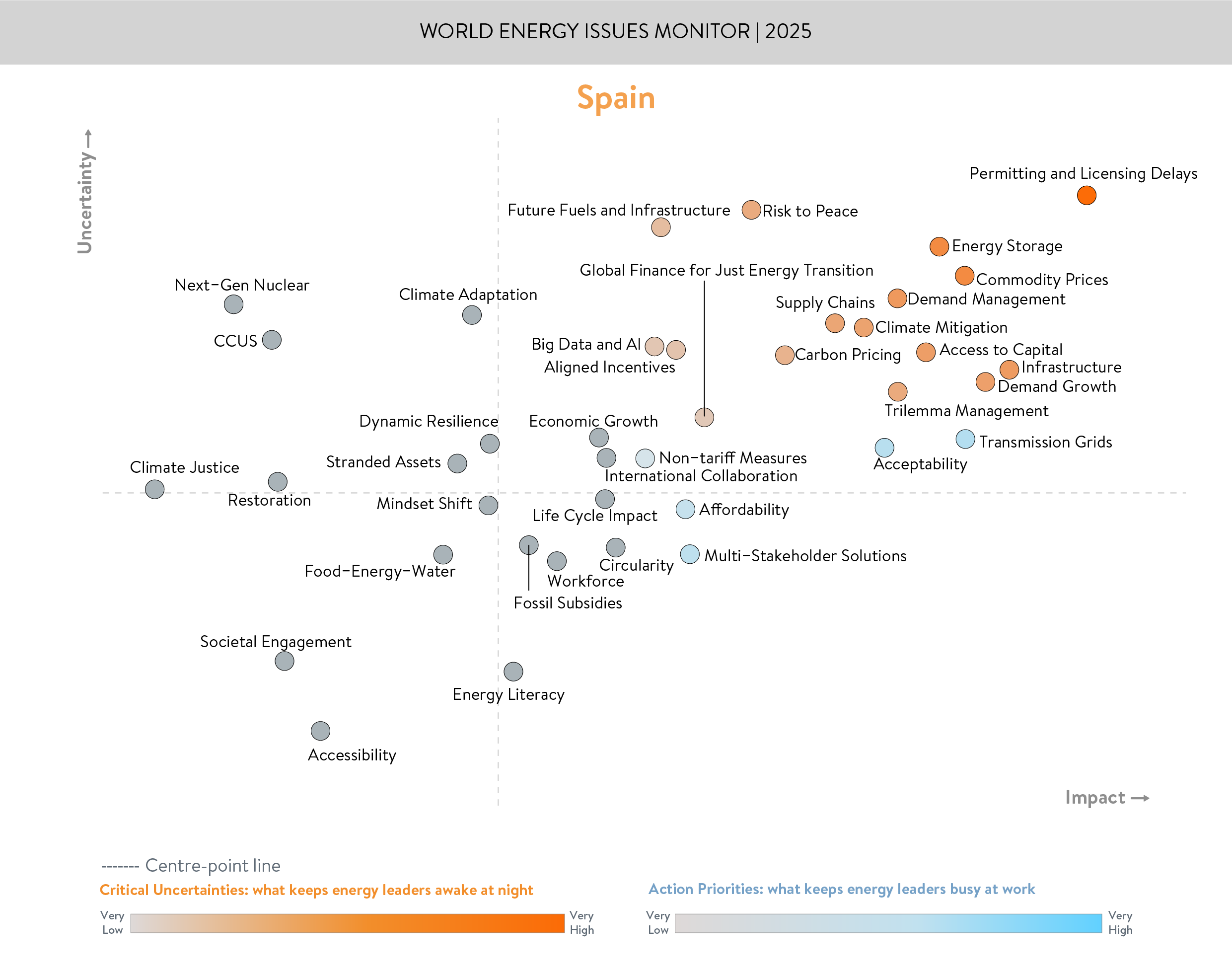
ENERGY ISSUES IN MOTION
The Spanish map in this new edition highlights a greater number of issues in the area of critical uncertainties, especially those related to regulatory environment, while concerns about geopolitical issues remain persistent. For the first time, permitting and licensing delays have emerged as significant agenda items. Transmission grids continue to be a great impact issue, moving from the area of more uncertainty to the action priority.
Top Critical Uncertainties:
Permitting and Licensing Delays. Spain has ambitious goals in its National Energy and Climate Plan (NECP) 2023-2030 for renewable energies, energy efficiency, electrification, grids, etc., which would mobilise total cumulative investments of 308 billion euros by 2030. Difficulties are emerging for the development of some projects due to delays in permits, procedures and growing social opposition, which increases project costs and project schedules, thereby hampering Spain´s ability to meet objectives, and to cope with new demand developments. Progress is being made in different areas to unblock this situation, but more actions are needed.
Energy Storage and Demand Management. Spain produced 57% of its electricity generation from renewable sources in 2024 (more than 40% wind and solar) and, according to its national Plan, this share should increase to 81% in 2030 (100% in 2050). The growth of renewables coupled with stagnant electricity demand led Spanish electricity markets to wholesale prices below zero in 2024, and to renewable energy curtailments. In this context, demand-side management, batteries, hydro pumping storage, new vectors like green hydrogen, remain key aspects for achieving greater system flexibility and the right price signals. Part of the solution lies on capacity mechanisms, on which the Government is moving forward.
Top Action Priorities:
Transmission Grids have emerged as the top action priority. Spain is working on updating its 2025-2030 Electricity Transport Grid Development Plan to cope with expected growing and new demands, integrate more renewables and storage solutions. Also, work is being carried out to analyse the investment cap and criteria for distribution grids, as well as their regulated economic remuneration in the 2026-2031 period. Special mention should be made to the important challenge of European integration through interconnections, which are for the Iberian Peninsula currently below the limit recommended1 by the EC (only 3% with France). There are projects underway that would increase the connection capacity with France to 8,000 MW by 2035.
The lack of Social Acceptance for project developments in some territories is becoming an issue of growing impact, highlighting the need for greater communication, education and awareness about the energy transition and its importance. Energy companies are launching various social acceptance programmes seeking to improve the image of their projects and their contributions to the biodiversity and to the territory, with an inclusive approach and creation of employment at the local level. It is considered essential to have the support from the different authorities and also to rely on interest groups or communities living in the territories. Multi-stakeholder Solutions, which require greater coordination and collaboration, are key and repeats this year as one of the main priorities for a successful energy transition.
FROM BLIND SPOTS TO BRIGHT SPOTS
Blind Spots. It is striking that even though social acceptance is perceived as a priority issue, elements such as social participation, education, and mindset shift are perceived within the zone of low impact. These are essential for building an inclusive and socially just transition. The availability of skilled workforce is an issue of growing concern in the energy sector which is also not classified in the area of high impact and needs further attention and actions.
Bright Spots. Spain has pioneered important measures to minimize the impact of the energy transition in areas affected by the shutdown of coal mines and plants. The country has a Just Transition Strategy that includes an Urgent Action Plan and Just Transition Agreements between the government, trade unions and businesses in the affected regions. These include initiatives for the development of renewable energy projects, with a commitment to job creation and new opportunities for economic grow, including numerous industrial, agricultural and tertiary sector projects. These agreements have brought about real social and economic development projects in these areas.
ADDRESSING UNCERTAINTIES AND PRIORITY ISSUES TO BALANCE THE WORLD ENERGY TRILEMMA
In addition to international conflicts, growing protectionist policies and geo-economic confrontation are making the geopolitical scenario even more complex and unpredictable. The debate on the need to re-balance the energy trilemma dimensions has been central in this context.
Energy Security
- Supply chain constraints and geopolitical risks create uncertainty in fossil fuel and critical minerals supplies. More focus should be put on strengthening the national and UE industrial value chains and on the strategic autonomy.
- Electricity grids modernisation, together with storage and other solutions, are shifting the perception of what energy security means in an increasingly electrified world. In this context, also the debate on the life extension of existing nuclear has been reopened.
- The development of a green hydrogen economy, other renewables gases and clean fuels, as well as the adaptation and construction, where necessary, of the required related infrastructures, continues to receive greater attention. Many projects are underway such as the Spanish hydrogen backbone and its related interconnection infrastructure, though challenges remain to be overcome.
Energy Equity
- Although commodity prices have decreased in 2024 vs. 2023, market volatility has remained. Of particular concern is the price differential between regions (in general, higher in the EU compared to the US and Asia), and how this may affect investment decisions.
- How the differences in the cost of capital between regions/countries can affect investment decisions is also of growing concern.
- Energy affordability and competitiveness are key for Spain to take advantage of its great potential as a major hub of clean industry investments. As the European Commission has stated, tariffs should minimize their burden of taxes and levies. Protection of the most vulnerable people and sectors stays high in the national agenda.
Environmental Sustainability
- Climate change mitigation stays scoring high in the Spanish agenda (with a goal for 2030 of reducing GHE by 32% vs. 1990, 55% vs. 2005), with concerns especially in sectors where the decarbonization is more difficult. The Carbon Border Adjustment Mechanism, as complement of carbon markets, is an essential tool for keeping the EU industry competitive in the global markets while reducing emissions.
- Adaptation, although it is not located in the area of more impact, it´s an issue to be closely watched due to the high vulnerability of the Spanish territory.
- Food-Energy- Water nexus, Circularity, also has a low perception, and needs to gain more attention in the agenda.
Acknowledgements
Spain Member Committee
Downloads
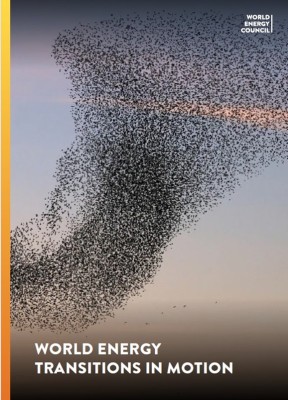
Spain World Energy Issues Monitor 2025 Country Commentary
Download PDF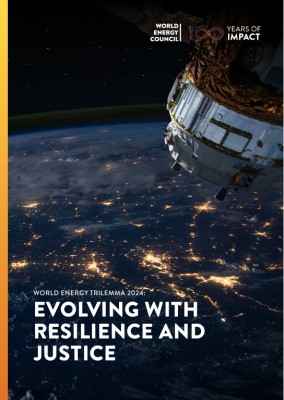
Spain World Energy Trilemma Country Profile 2024
Download PDF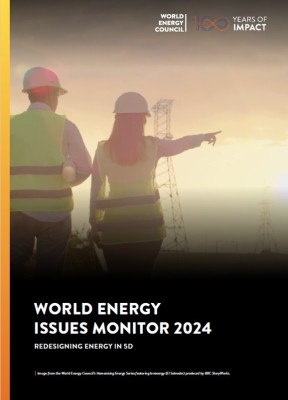
Spain Energy Issues Monitor 2024
Download PDF
World Energy Issues Monitor 2024
Download PDF


